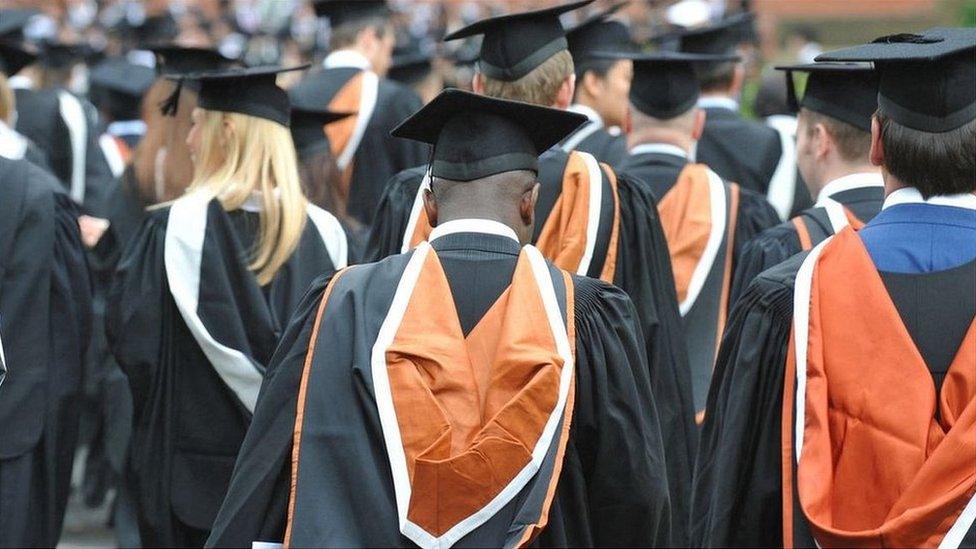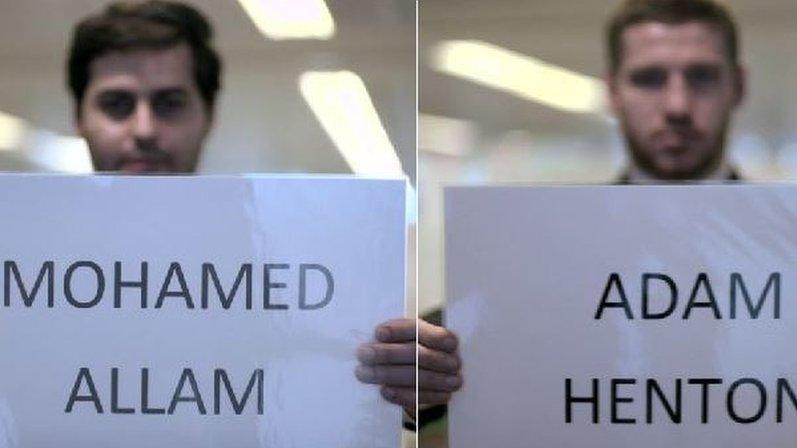Ethnic minority graduates 'face jobs gap'
- Published

Graduates from ethnic minorities in Britain are less likely to be in work than their white peers, a study says.
The Resolution Foundation found, external that despite a higher proportion of BAME (black, Asian and minority-ethnic) people obtaining degrees, they face "employment and pay penalties".
Bangladeshi and Pakistani graduates are about 12% less likely to be employed than white British graduates.
Indian and Black Caribbean graduates have a jobs gap of about 5%.
The proportion of working-age people with degrees has increased across all ethnic groups, from 12% in 1996-99 to 30% in 2014-17.
Since the end of the 1990s, the numbers of working-age Indian, Pakistani and Bangladeshi people with degrees has more than trebled - to 50% 30% and 25% respectively.
Living standards
The proportion of white British people with degrees has also increased over the same period, although less rapidly - up from 12% to 28%.
Kathleen Henehan, from the think tank, said the rising numbers of those attending university was a "well-known British success story of recent decades".
She added: "The progress made by black and ethnic minority groups is astounding, with the share of Indian, Pakistani and Bangladeshi graduates trebling in less than 20 years.
"But despite this success, graduates from a black and ethnic minority background still face significant employment and pay penalties in the workforce.
"These labour market disadvantages are a big living standards concern and mean we risk failing to make the most of the investment made in their education."
- Published22 March 2017

- Published6 February 2017

- Published1 February 2016
